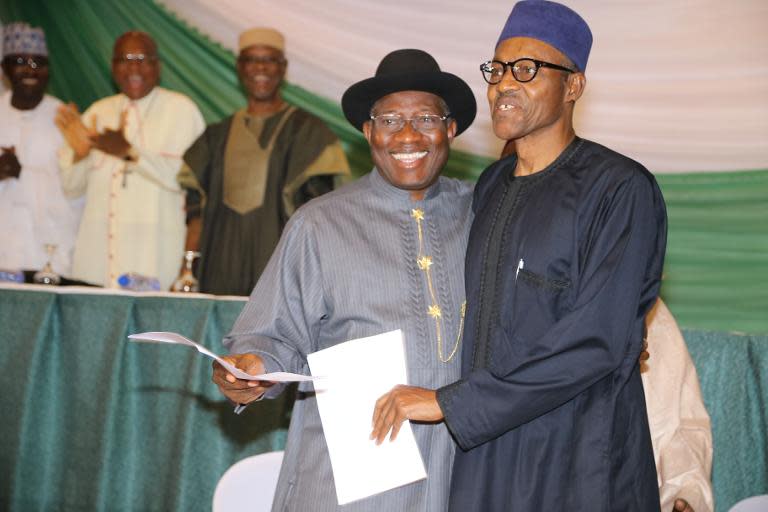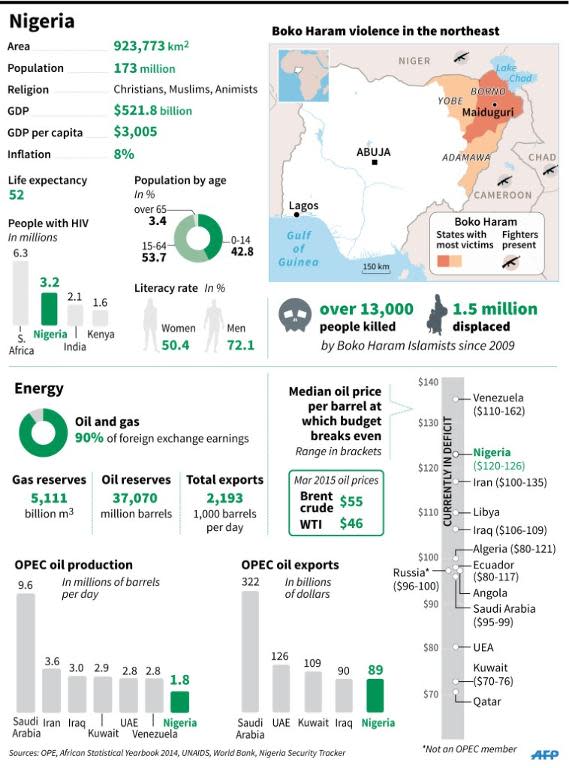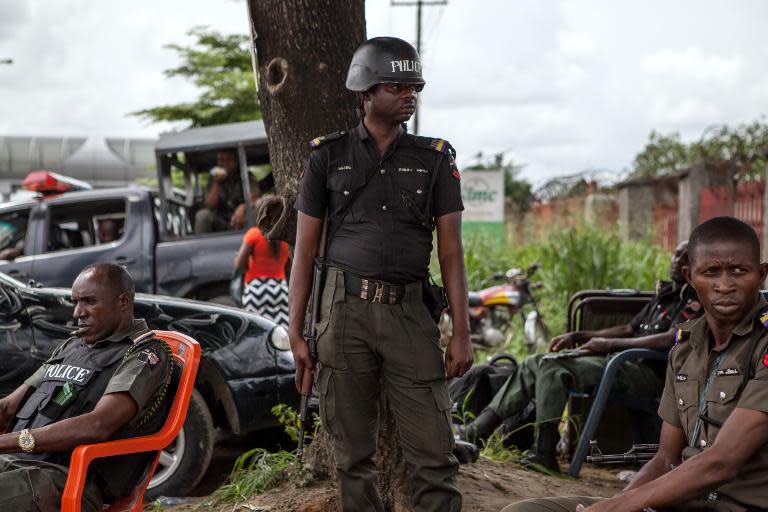Nigeria's Jonathan calls for peaceful vote
President Goodluck Jonathan on Friday urged Nigerians to turn out in force to vote in this weekend's presidential election, calling for calm in the face of rising tensions and fears of violence. "I urge you all to troop out en masse to peacefully perform your civic duty of voting for leaders of your choice tomorrow (Saturday)," he said in a televised address. Africa's most populous nation goes to the polls with the election being seen as the closest in its history, with Jonathan facing a strong challenge from the main opposition's Muhammadu Buhari. Some 1,000 people were killed in clashes after the last election in 2011 when Jonathan defeated Buhari, and there are fears of a repeat this time round. Land and sea ports were shut at midnight on Wednesday (2300 GMT) until the end of voting and an eight-hour restriction on vehicles on the roads is being put in place from when polls open at 8:00 am on Saturday. Nigerians have in recent days being queueing for fuel at filling stations and bulk buying water and groceries as a precaution in the event of election-linked violence. Many offices and shops were shut on Friday or staff were sent home early. In the southern oil city of Port Harcourt, security was tight around the local offices of the electoral commission and government buildings, as final preparations were made. Voting materials were being labelled for distribution to polling centres in the state, which is seen as a key battleground as it is controlled by the opposition All Progressives Congress (APC). Jonathan, who hails from neighbouring Bayelsa state, enjoys support in Port Harcourt, where he was educated, and voters were keen for a peaceful election after several incidents of violence. "I have my PVC (permanent voters card) and on Saturday will exercise my civic duty," said Nkechi Nwoke, a 42-year-old tailor. "I want the election to be free and fair." - Too close to call - Jonathan and Buhari on Thursday again pledged themselves to non-violence and to abide by the results. The president on Friday called on all parties to do the same, warning citizens that "the eyes of the entire world are on us. "We must therefore comport ourselves in a manner that will further strengthen our democracy and consolidate our place in the comity of truly democratic nations." He added: "Let us go out tomorrow to vote peacefully and set a fitting example of political maturity for other emerging democracies to follow." Election observers from across the world, including the European Union, the United States, African Union and the west African bloc ECOWAS are in Nigeria to monitor the vote. US President Barack Obama this week sent a video message to Nigerians, calling for them to reject violence and instead seize a "historic opportunity" for progress. The UN's special representative to west Africa, Mohammed Ibn Chambas, said the signs were that the contest was too close to call. "That's good for Nigerian democracy but at the same time, because there's so much at stake, obviously it's heated up the political environment," he told AFP in Abuja. The election was delayed by six weeks from February 14 on the grounds that soldiers fighting Boko Haram Islamists in the northeast would not be available to provide security nationwide. Jonathan said in his address that troops had "successfully stemmed the seizure of Nigerian territories" and "recaptured most of the communities and territories formerly occupied by the insurgents".

 Yahoo Finance
Yahoo Finance 


